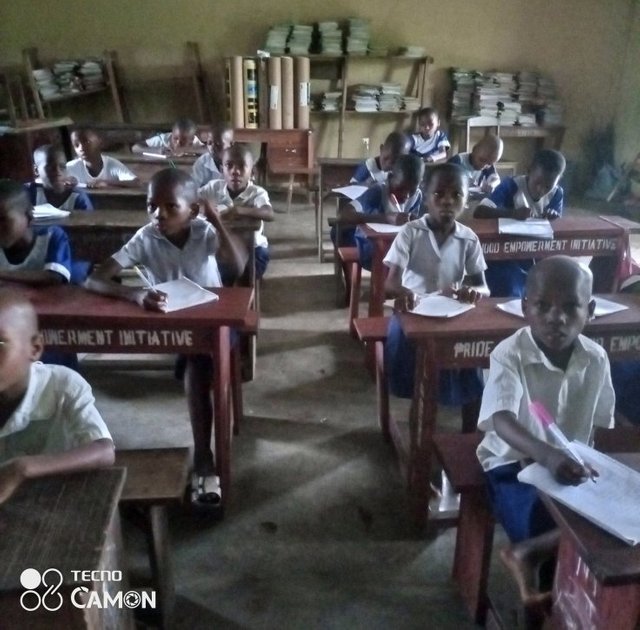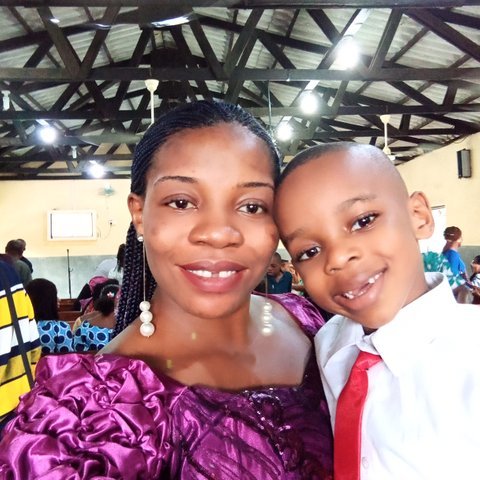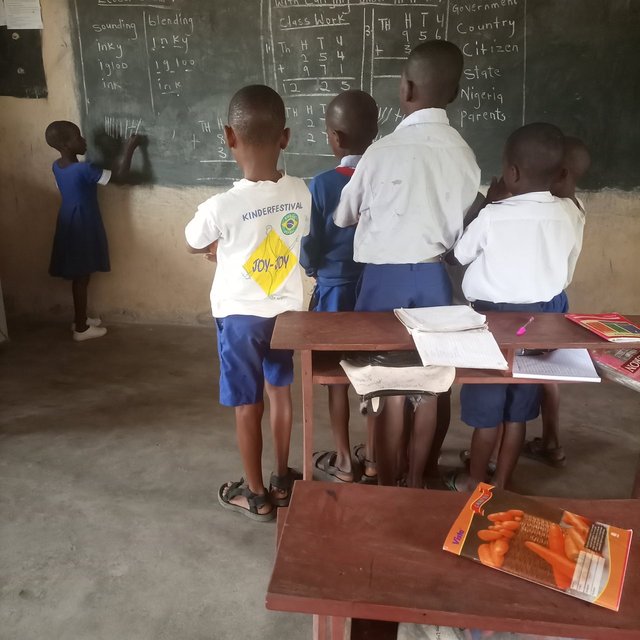
Hi friends it's a pleasure to be part of this week's engagement contest. As a teacher, I need to get to know each of my students very well and understand their different characters as this will help me to effectively tailor my teaching methods and strategies to suit each of my student's needs and learning styles and thus, enhance my student's learning experiences and encourage an engaging & supportive learning environment.
Elaborate on your understanding of student characteristics, as discussed in the subject matter post. Explain comprehensively and develop your understanding of this. |
|---|
Just like every other human, each student has a different psychological, cognitive, social, spiritual, and physical value, which can directly or indirectly affect their learning process.

1. Cognitive Aspects:
Every student has different levels of intelligence quotient; some are very high, Some Average, while others are low. As a teacher, knowing their intellectual level will help me to know how to impart knowledge. For instance, students with high cognitive abilities will easily pull through any challenging task and thrive, they like brainstorming! While the ones with low cognitive value will love to see things with their eyes, as this will help them to recall what they're being taught easily.
The classroom is normally mixed, so I usually implement different learning styles, visual, auditory, or kinesthetic, as these allow me to design different instructional methods that suit all kinds of learners.
2. Emotional Aspects:
Emotional stability is so important in students' lives, it affects how they can absorb what is being taught in class, and their participation in class activities. I always monitor my student's motivation levels and this has helped me to inspire some students who are disheartening and disengaged. Once in my class, I observed one of my students being very sad, and I approached her and tried to find out why; she told me that the lesson reminded her of her family's situation, that she's from a polygamous family, that they are experiencing all the disadvantages of this kind of family, I tried to cheer her up let her know that there are some things she can't decide, and as such shouldn't allow such things to take away her happiness, you know what? Her mood automatically changed. So, as teachers, we must be observant and communicate freely with our students.
I always try to identify their interests and talents and then engage them in activities that promote their interest.
3. Social Aspects:
Students who have communication skills can interact well and collaborate with others. However, some are reserved, so observing them closely normally helps me to identify those who need support in building relationships.
I always try to look into different students' social and cultural backgrounds and this has helped me to create a culturally responsive classroom in which everyone respects one another and appreciates diversity.
4. Physical Aspects:
- Children grow differently, some so rapidly and healthy, while others might be affected by some health issues; these can impact their learning abilities, attention span, and class participation.
5. Psychological Aspects:
- Some students are introverted (very timid and reserved), some are extroverted (so outgoing), yet others are ambiverts striking a balance. They're extroverts but love their alone time also. We should try and help students identify themselves with one as this will increase their confidence levels and abilities.
6. Spiritual Aspects:
- Knowing each student's religious beliefs and moral values will help in creating an inconclusive environment in which everyone respects others' beliefs.
Invite one of your students, your friends, or anyone else to try 1 method of recognizing student characteristics, according to the examples in the material. And tell us the results of observing the characteristics of your student. |
|---|

For this task I used my 7-year-old son Jahofon, I have known him right before birth, Jahofon is very smart and ambivert and I've identified these characteristics in him:
Cognitive Aspects: he's very good at analytical thinking, no wonder he scores well at mathematics and other complex topics.
Emotional Aspects: Jahofon has moderate emotional stability, sometimes he experiences anxiety during exams but then he's always curious about learning something new.
Social Aspects: Jahofon loves learning in a group, he's cooperative and loves collaboration so he's outgoing.
Psychological Aspects: He's Ambiverted; he enjoys and thrives in social settings but then still loves his alone time to think.
According to you. Providing questions, tasks, or projects that require critical thinking and in-depth analysis, more suitable to be given to students who have the ability of which characteristic category? Give us an explanation of this. |
|---|
I think tasks like this will suit extroverted, or ambiverts critical thinkers who have strong or advanced cognitive values. Because they will be able to do research and think of new ideas before drawing to thoughtful conclusions.
I normally engage students with advanced cognitive values in tasks that they will use their head & hands to make, engaging them in debates and analyzing results because they can think critically.
According to you. When a student feels depressed or anxious, especially in an evaluation situation. What category of characteristics does such a student belong to? Explain your answer and how to solve it. |
|---|

It simply shows that the student is emotionally unstable, and this particular student will have low motivation towards learning and will be stressed in academic settings.
Explanation And Solutions:
Any student facing anxiety will find it difficult to focus. He will have a fear of failure and low self-esteem and I will address this issue in the following ways:
1. Creating a Supportive Environment: I will make sure that in my class, mistakes will not be viewed as failures but as learning opportunities because this will help eliminate fear.
2. Providing Preparation Resources: I will prepare the student ahead of classes and tests by giving the student the study guide in advance and even practice tests; this will make the student feel more prepared and confident.
3. One-on-One Support: I will talk to the student in private, and know their concerns, then I will know the best way to help them.
4. Mindfulness Techniques: *I will help the student manage stress by helping them to do some relaxation exercises or yoga.
As a teacher knowing each of my student's personalities will help me to meet their academic needs, improve learning outcomes and create a more supportive and engaging classroom.